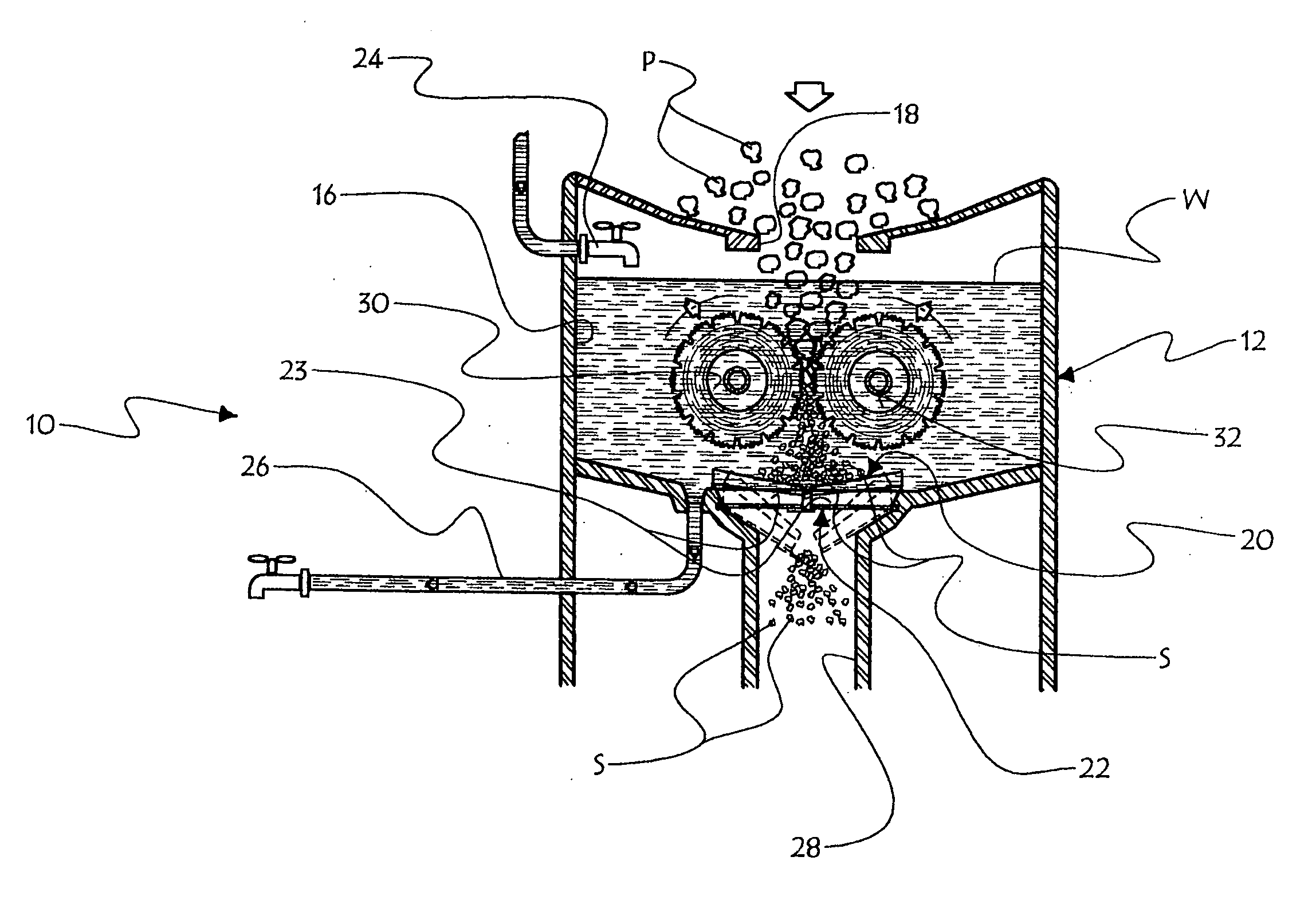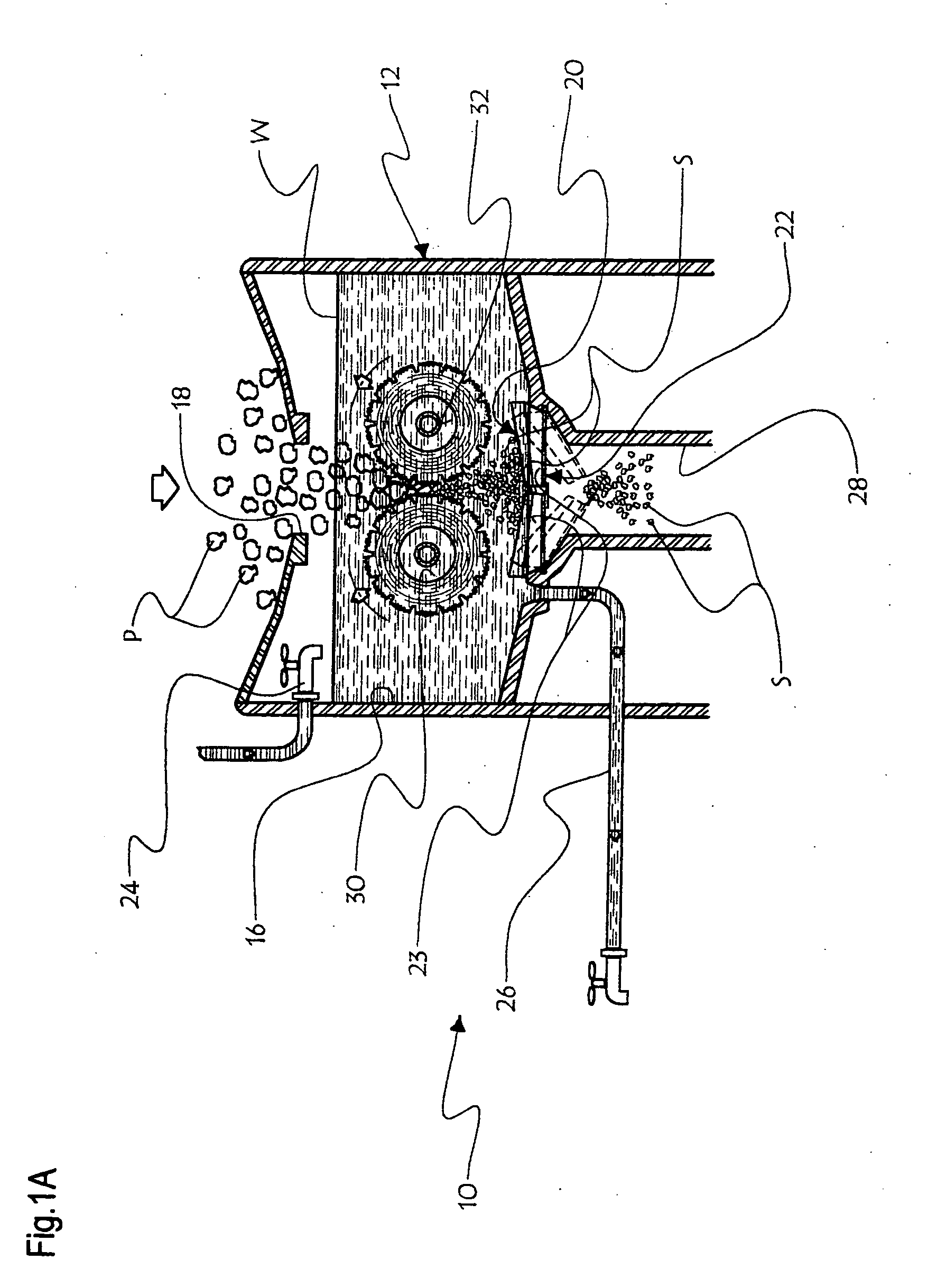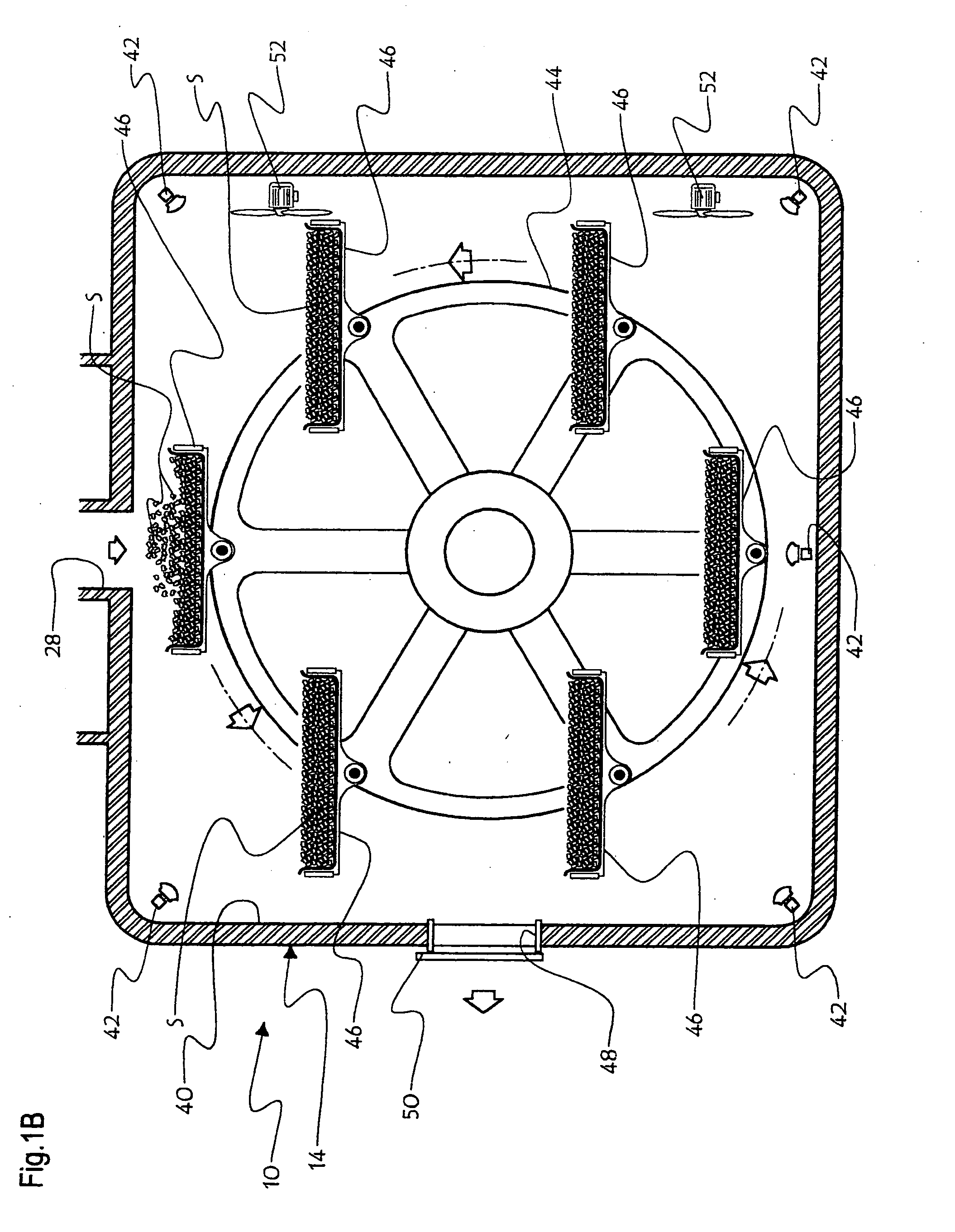Method for preventing asbestos from freeing airborne particles
a technology of airborne particles and asbestos, which is applied in the field of methods for preventing asbestos from freeing airborne particles, can solve the problems of asbestos-related diseases, lethal, and hazardous gathering of asbestos, and achieve the effects of preventing asbestos from forming a combustible substan
- Summary
- Abstract
- Description
- Claims
- Application Information
AI Technical Summary
Benefits of technology
Problems solved by technology
Method used
Image
Examples
Embodiment Construction
[0035] The present invention discloses a method for preventing asbestos from freeing airborne particles, to prevent the asbestos from having baneful effects for the human being. Indeed, if no asbestos airborne particles exist, then no asbestos particles become inhaled by humans, and it therefore becomes safe to use.
[0036] According to the present invention, asbestos that is retrieved from mine sites, either open mines or mine tunnels, must be soaked with water during its extraction. This can be accomplished in any suitable manner, for example with suitable water hoses that spray a high flow rate water jet during the asbestos extraction. According to one embodiment, the asbestos is soaked by being submerged in water during its extraction. In any event, ample quantities of water must be used to ensure a proper soaking of the asbestos that is or becomes in contact with the ambient air.
[0037] The asbestos extracted from a mine site will be retrieved in the form of mineral pieces of va...
PUM
| Property | Measurement | Unit |
|---|---|---|
| temperature | aaaaa | aaaaa |
| temperature | aaaaa | aaaaa |
| temperature | aaaaa | aaaaa |
Abstract
Description
Claims
Application Information
 Login to View More
Login to View More - R&D
- Intellectual Property
- Life Sciences
- Materials
- Tech Scout
- Unparalleled Data Quality
- Higher Quality Content
- 60% Fewer Hallucinations
Browse by: Latest US Patents, China's latest patents, Technical Efficacy Thesaurus, Application Domain, Technology Topic, Popular Technical Reports.
© 2025 PatSnap. All rights reserved.Legal|Privacy policy|Modern Slavery Act Transparency Statement|Sitemap|About US| Contact US: help@patsnap.com



